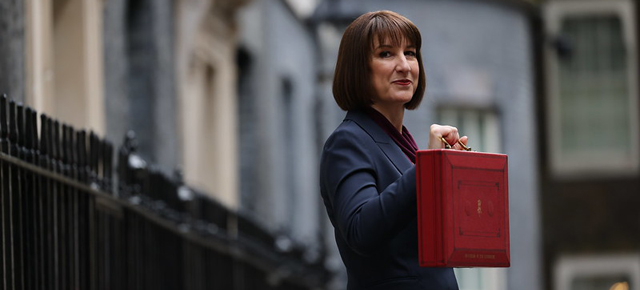Chancellor faced criticism for raising England’s bus fare cap from £2 to £3 and increasing rail fares by 4.6% while retaining the 5p fuel duty cut
Chancellor Rachel Reeves delivered her first budget this week
Rachel Reeves delivered her first budget this week with some positive news for public transport, including investments in rail infrastructure and the extension of England’s bus fare cap instead of scrapping it. But there was also disappointment that her policies won’t shift the dial in favour of public transport.
The chancellor provided a list of rail commitments, including for the Trans-Pennine route, with electrification of the Manchester to Stalybridge line, and from Church Fenton to York. There was also a commitment for East-West Rail, with Bedford reached by 2030, and electrification of the Wigan-Bolton line. There was also a pledge to extend HS2 into Euston, and £650m was earmarked for local transport funding.
However, the chancellor faced criticism for raising the bus fare cap from £2 to £3 and increasing rail fares by 4.6% while retaining the 5p fuel duty cut.
By choosing to keep the 5p fuel duty cut and continue freezing fuel duty for another year, the chancellor has committed to costing the Treasury a further £4.2bn in lost revenue
Paul Tuohy CEO of charity Campaign for Better Transport, said: “By choosing to keep the 5p fuel duty cut and continue freezing fuel duty for another year, the chancellor has committed to costing the Treasury a further £4.2bn in lost revenue. This revenue could have nearly quadrupled support for English bus services, benefitting millions of passengers and preventing vital services from being cut.
“The government talks of delivering on the environment yet undermines itself by failing to adequately tax our most polluting forms of transport and support the most sustainable.”
Tuohy added: “It’s about time the Treasury reconsidered its priorities when it comes to transport.”
Responding to news that rail fares will rise by 4.6% and the cost of most railcards will increase by £5 in 2025, he said: “Raising rail fares above inflation and hiking the cost of railcards is a kick in the teeth for people who rely on public transport, especially those on low income. Doing this at the same time as keeping fuel duty frozen sends entirely the wrong message. To tackle air pollution, congestion and climate change, we need to make public transport the attractive, affordable choice.”
This big tax rise will weaken the ability of bus operators to invest
Bus operators gave a mixed response to the budget. The Confederation of Passenger Transport welcomed public funding for buses to safeguard vital routes and ensure that fares across England are capped at £3 instead of the previous £2. There were fears amongst some in the bus industry that it might be scrapped completely at the end of the year.
However, CPT warned that the chancellor’s increase in national insurance contributions would weigh heavily on bus and coach operators, typically costing £800 a year for each driver. “This big tax rise will weaken the ability of bus operators to invest,” said Alison Edwards, CPT’s director of policy and external relations.
This article appears in the latest issue of Passenger Transport.
DON’T MISS OUT – GET YOUR COPY! – click here to subscribe!
The post Budget brings relief – and disappointment first appeared on Passenger Transport.

